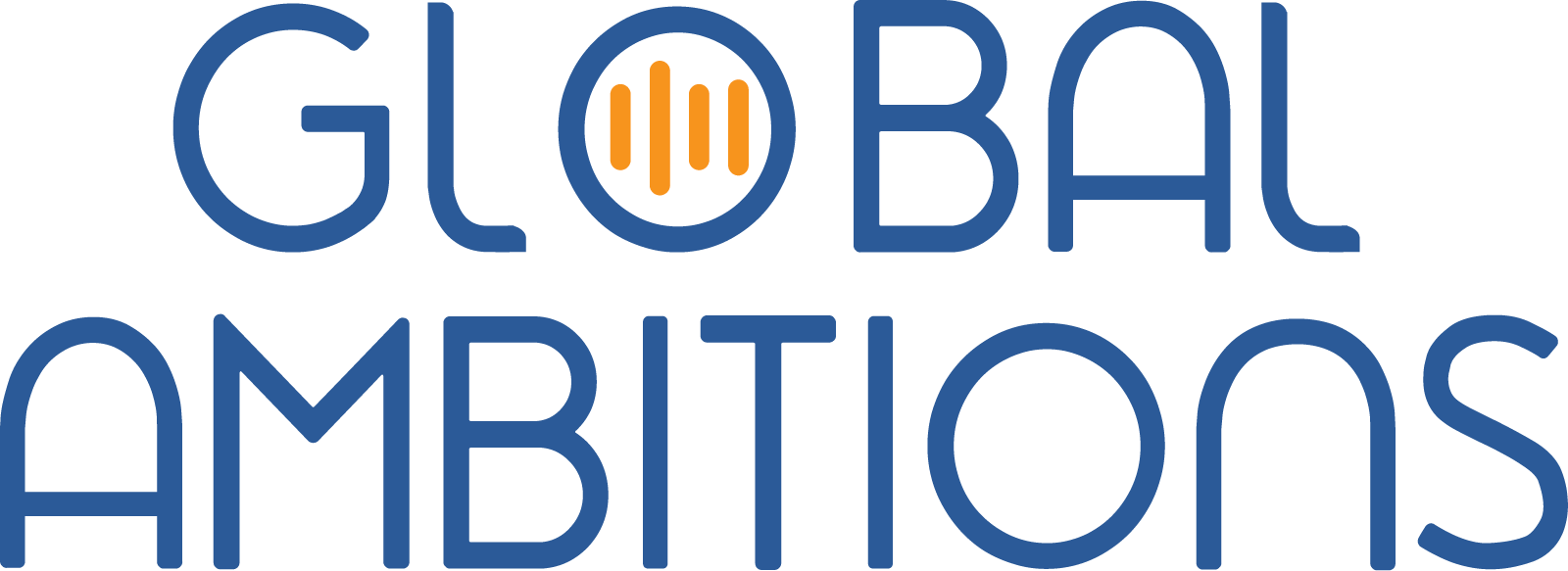With Rebecca Rey, Director and Senior Analyst at CSA Research
Below is a full transcript of this episode
Stephanie Harris
Hello, I’m Stephanie Harris, and I’ll be your host today for this episode of Global Ambitions. Our guest today is Rebecca Ray, and she is a director and senior analyst at CSA Research. And our topic today is “Localization’s time to shine.” Rebecca, welcome to the program.
Rebecca Ray
Thank you so much for having me. I have been looking forward to this.
Stephanie Harris
We have as well. So maybe before we go ahead and jump into the topic, can you tell us just a thing or two about yourself and your history?
Rebecca Ray
Sure. My background was originally mostly in international product marketing. So I’ve been in it, you know, from the days when the software developers’ eyes were kind of glazed over and went, “Oh no, we need to do what, Rebecca?” So I worked with a lot of good people on that side and worked for several software companies in Silicon Valley and then joined CSA research to basically tell people what to do. And if they want to listen, that’s great. If they don’t, they don’t have to. But it’s really given me a platform to share with people the expertise developed over the years. So that’s me in a nutshell.
Stephanie Harris
Okay, So without further ado, let’s jump right in. So “Localization’s time to shine”. What does that mean? And how do you see that in this day and age?
Rebecca Ray
What happened was that as the pandemic shut places down and we all began to work from other places, we began to realize that localization teams really had a lot of expertise that they could use to support their companies, not only for the international part but to really be resilient, because localization teams, oftentimes they’ve had remote teams for a long time.
They work with distributed supply chains. Things often change. Technology doesn’t always work the way it’s supposed to. And so people within localization are really used to dealing with risk and with stress and having to figure out solutions. So we found that some teams really were even being asked by their colleagues in marketing, engineering, and customer support and saying, “Hey, you guys are really good at figuring this stuff out. You know, we need help moving forward. What should we be doing?”
And so what we did for our research was to try to help other teams who hadn’t maybe seen those opportunities to say, you can reach out. People are going to be looking for help. Even your executives don’t know what to do at this point. So if you have recommendations on the international side or even how processes could be changed, you know, you should speak up at this point because you have a lot of expertise, because your function is so broad and you work with so many people within the company. So that’s how it dawned on us that we needed to make sure that all teams knew that they might have those opportunities within their company.
Stephanie Harris
Yeah, well, it sounds like that would be just a great way to sort of reposition localization as thought leaders.
Rebecca Ray
Exactly.
Stephanie Harris
So what do you see is the biggest challenge for these teams as they want to take that next step into leadership? What are some of the challenges that you see pop up?
Rebecca Ray
I think one of the biggest ones will be simply, okay, do we have enough people to do this? Because once obviously other teams find out, man, okay, this team not only can deliver our content, but they could really help us redo our processes or, you know, they could help us design the chatbots that we need to do that. We’re not sure how we’re going to do them in customer support. So that’s one of the big things because some companies obviously did have to keep their budgets the same going forward. So that’s a big thing. Do we have enough people in the right places to do what we need to do?
I think another thing was for people to really simply have the confidence to do it, to say, we know we can do this. Our team, we really know that we can.
And the third thing, even though people were coming for help, was also to make sure that the localization team is speaking back to them in a way that they understand. So whether that is using their language to describe what’s going on within their business function or whether it’s to tie it to an enterprisewide or a business function initiative, those issues are really important. I think that people didn’t necessarily see it.
And you also have to keep your eye on the business part of it also. And I think, you know, some teams are stronger than others at doing that as well. But most teams, once they see the opportunity, can oftentimes figure out this is what we’re going to do. And they also need to have executive support many times for this if they don’t already. So it doesn’t have to be an executive within their business function, but certainly, someone to have their back in case, you know, they need help with funding or, you know, to go to a director and say, look, we really can help you. You know, people you can talk to that way.
Stephanie Harris
Yeah. Okay. Well, I know that one of the big challenges that we’ve seen with our clients and with different folks who we work with is that getting a seat at the table is really hard to start out with. And you mentioned ROI and being able to show that on the business side, really knowing the business side is super important in order to make that step. Do you have some actionable tips that you can give as far as what to present and what to do around that aspect?
Rebecca Ray
Mm hmm. And in fact, we’ve got some research, actually, with that title about gaining more seats at the table. And yeah, that’s key. And that’s always been an issue for localization teams. And I think one of the biggest things for that is to simply have the right people for the table. You know, we say. “We need a seat, we need a seat,” but oh my goodness, do we have the right person for that seat or the right people? So that’s one of the things.
Also, I think when people work with companies such as your own well, even before I worked for CSA Research, I was pushing companies to say, look, you’re having these languages translated or this content or this interpreting done, you know, work with that company as a partner because they have so much expertise that they can give you, you know, from their other clients. So take their ideas for getting a seat at the table.
One of the biggest ways to do that also is through a corporate-wide initiative, whatever that might be because the great thing about language is that it is a horizontal function. Actually, it’s a positive and negative. From a positive point of view, it means that a localization team could literally stick its nose in anywhere because there will almost always be some connection to international there. On the other side, there’s generally… hardly ever, like in .00 1% of the time, will there be a C-level executive actually with any kind of responsibility for any kind of global content. Unless you’re a streaming company or something it is just not going to happen, right? So that means that you’ve got to go out and find someone there to help you.
But on the business side, what we encourage companies, and we have data to support it, is to really make friends within the finance function. Whether that’s all the way up to the CFO or whether it’s a director, a chief financial officer, another director that you have someone at least on a quarterly basis, that you can go to talk to. Not only about your own numbers for your budget, but also to say, Hey, what are other teams doing in the company? Are there some different ways we could measure ROI? How do we become your best friend, you know, so that you enjoy working with us? Because they oftentimes have a very holistic approach and view to the company and will often share things that you wouldn’t find out so soon. So that’s one of the biggest pieces of advice we would give, is make sure that those are your best friends if they’re not already.
Because if they see that you have the expertise and you’re very good at what you do, and you’re good with your numbers, there are lots of things that financial people will do to really clear the path for you. They’ll have your back, as they say. Okay, I love those people.
Stephanie Harris
They are very awesome.
Rebecca Ray
They are. They really are. And a lot of times have very good ideas and are very creative actually, sometimes. And people don’t realize that. I think.
Stephanie Harris
So. Maybe the next question would be if, say, I’m a localization manager at a company, I can speak the language of localization really well. And to go out and reach out to these folks in different departments with different experiences, they might not know anything about localization, and that can be really intimidating. So do you have any tips on what’s a good method to reach out to these folks, or what should I do to prepare myself to be able to speak in an intelligent manner to folks who have a very different language than I do?
Rebecca Ray
I think the first thing is to really understand this is true for everyone. You know, what are the particular pains? What are they currently and what do you think they’re going to be over the next 12 months? So you can go in asking those. I’m assuming now that you’re kind of on a one-on-one with a director or VP or something, you’re sitting on Zoom or in an office or, you know, someplace that you can talk to someone. And so there might be ways to do some of that research first. But if not, then you ask and find out. Even if it has nothing to do with international, what are the two or three biggest challenges they’re trying to handle right now?
And then see if there’s anything related to international, what you’re doing. If there’s not, there’s not. But you know, 95% of the time, there is something there. If they’ve been willing to talk to you, they obviously know that you have something to do with international. And many times from a localization managers point of view, that person already has kind of a good idea of what the pains probably are because they’re already hearing from their country offices or partners or even, you know, companies such as yours to know what some of those pains are. And then you kind of just work out a plan together to see what could be done and who does what. And, you know, to really focus on it that way.
And I think in terms of speaking the language, so to speak, is again, to remember that a lot of times most people really won’t care about cost per word and they’ll say they care about quality, but they really don’t. Because they’re assuming that you know how to do that, that you and your partners can deliver that stuff for them or for other parts of the company. The question will be, what are they being measured on? What are the metrics, and what are their goals? What are they specifically being measured on? Not only revenue-wise. But, you know, other things that they’re trying to do for their teams.
And sometimes, depending on the corporate culture, the financial people may share some of that in a general way with you as well. Before you go in, say, to talk to customer support. You know, obviously, there’s going to be more than call deflection. We know that’s a big one. But there are going to be other things depending on the function you’re going into.
Stephanie Harris
Mm hmm.
Rebecca Ray
So you just sort of be a little bit of a detective. But most people in localization are used to asking questions and poking around, so. Yeah. And even in terms of speaking, the same language is to go in… If you are doing, even if it’s an informal presentation or a discussion, that’s where, again, financial people can kind of help you go, “Hey, could I have 15 minutes? This is how I was going to speak to customer support” or “this is how I, you know, thought I present things to engineering.” So even if you don’t have access to people within those business functions, oftentimes, the financial people again, can give you some good feedback if you don’t have those connections.
Stephanie Harris
Right. Okay, great. So I guess my last question for you is more looking at the future. So in the next, say, like six months to a year, is there anything that really gets you excited and you’re thinking this is another area for localization to shine and this is something that’s coming up? Anything like that?
Rebecca Ray
I think I’ll give you an idea of what we’re tracking at CSA research right now. I guess, obviously, the biggest thing is still artificial intelligence and machine learning, not only for machine translation but for other areas. As things improve in terms of what that kind of technology can do. So not only how it can be applied, but ethically how it can be applied and trying to look at how different countries are doing it and then applying that, you know, specifically to what’s going on in our industry.
I think another area I’m actually working on this right now; not quite sure why I got so interested, maybe because I had been remote since anyone was remote. I had to hide my child under the desk. I could not, you know, reveal the fact that I was not at the office. So I think the whole thing about hybrid work, remote working, what does that mean by country and by culture? What influence will that have? Or is that having on our industry and on companies such as yours, as well as on companies that are buying services from you?
Another big area is actually security, because with all of us, in the sense of being off and all these places, what does this really mean for how we’re connected and how all this stuff works from an international perspective? So that’s another area that we’re really focused on. A lot of video stuff, obviously, that continues. We’re taking a look into that as new technology comes up there.
But I will actually tell you why I’m excited, even though it’s not new, that I hope to be working on something new related to software engineering and internationalization since that’s my background in that area of working on a maturity model. So again, it’s not anything new, but to say, okay, guys, we know how this works, so let’s start measuring ourselves and getting metrics out there and seeing how we can do this across various companies. So there’s a lot going on right now. There’s so much going on. Oh my goodness.
Stephanie Harris
Yeah. Very exciting on a lot of fronts.
Rebecca Ray
Always something for us to do because I know that people who’ve known me for a long time who have nothing to do with international, they go, “Rebecca, why are people like still interesting to you?” And I go some of them did, but it seems that like not everybody did. So we still have to kind of get the message out there and make it as easy for companies as possible. So yeah, it’s still exciting. I get up every day, still going, okay, what’s new today? Because there’s always more than one thing. It’s just amazing. So I really enjoy it.
Stephanie Harris
All right. Well, thank you so much for coming on and sharing all of your wonderful insights with us.
Rebecca Ray
Thank you.
Stephanie Harris
Where’s the best place for people to follow you? Should they follow you on LinkedIn? Should they sign up to the CSA Research newsletter? How can people get more information?
Rebecca Ray
Sure. Thank you. For me personally, probably it’s on LinkedIn. I’m also on Twitter. This is terrible, but I did it in the early days. @GlobalizationDIVA, so they can follow me there, and yes, they can go simply to CSAresearch.com, and they can sign up for the newsletter and whatever else they’d like, the blog and stuff.
Stephanie Harris
All right. Well, thank you again.

Rebecca Ray
Director and Senior Analyst at CSA Research




